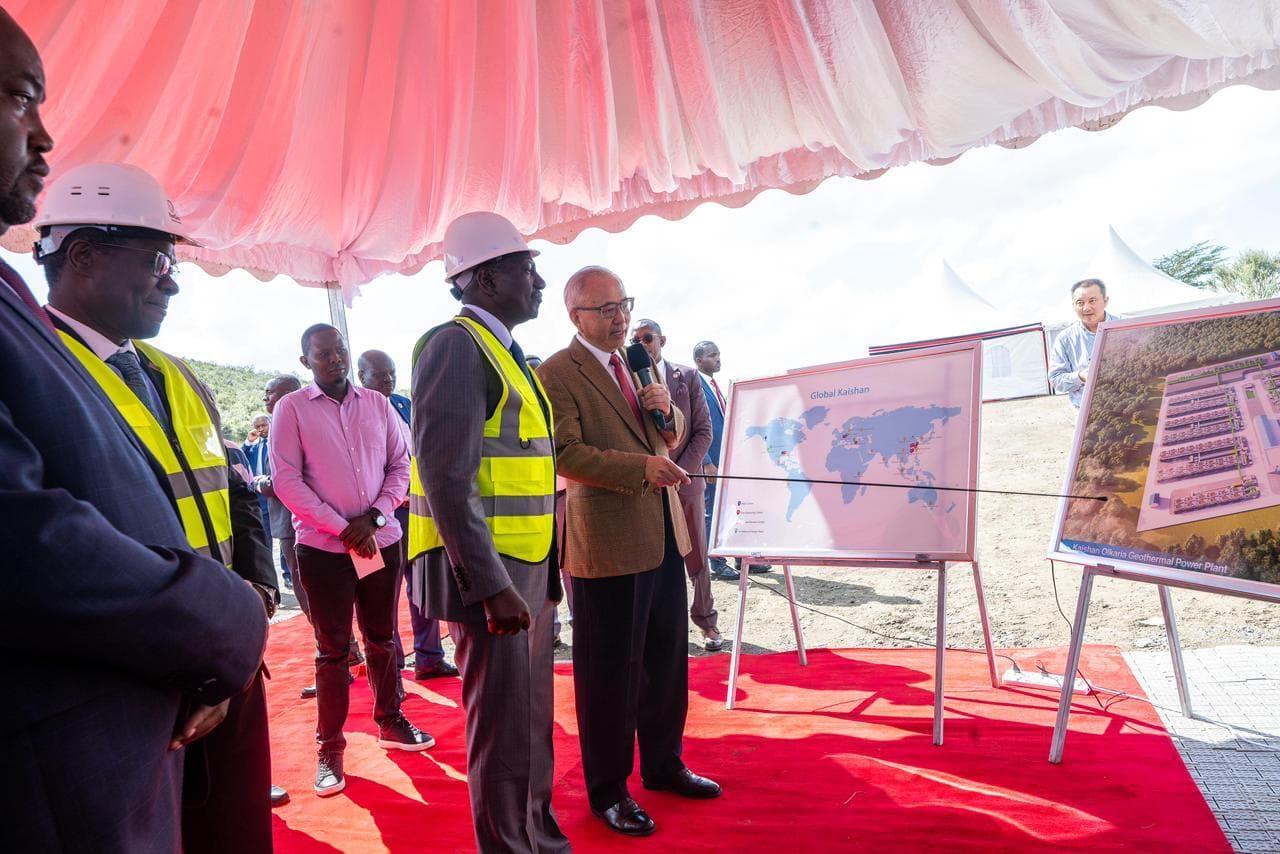We're loading the full news article for you. This includes the article content, images, author information, and related articles.
The landmark project, a first in Africa, aims to slash Kenya's reliance on costly imports and stabilize local food prices by producing 480,000 tonnes of fertiliser annually using geothermal power.

President William Ruto on Monday, November 3, 2025, launched the construction of a KSh 100 billion ($800 million) green fertiliser plant in Olkaria, Naivasha, a project poised to significantly alter Kenya's agricultural landscape and bolster its economic independence. The facility, a joint venture between the Kenya Electricity Generating Company (KenGen) and China's Kaishan Group, is the first of its kind in Africa to use geothermal energy for fertiliser production.
The plant is designed to produce an estimated 480,000 tonnes of green ammonia-based fertiliser annually, equivalent to over nine million 50kg bags. This domestic production capacity is expected to shield Kenyan farmers from the volatile prices and supply chain disruptions of the global market, which have previously inflated food costs and strained household incomes across the nation.
During the groundbreaking ceremony in Nakuru County, President Ruto emphasized the project's critical role in achieving national food security and economic resilience. He stated that Kenya's heavy reliance on imports has been a significant drain on the country's foreign exchange reserves. According to official figures cited by the President, Kenya imported over 600,000 metric tonnes of fertiliser in 2023 and another 443,000 tonnes in the first half of 2025 alone, at a cost of nearly KSh 60 billion. "Each shipment represents a cost to our Treasury and a lost opportunity for our people," President Ruto remarked on Monday. "Today's event marks a decisive step toward self-sufficiency and resilience in fertiliser production."
The project aligns with the government's Bottom-Up Economic Transformation Agenda (BETA), which prioritizes local manufacturing and value addition to support the agricultural sector. By providing a stable and affordable supply of fertiliser, the administration aims to lower input costs for farmers, increase crop yields, and ultimately reduce the national food import bill, which currently stands at KSh 500 billion annually.
Financially, the venture is projected to be highly beneficial for KenGen. The state-owned power producer is expected to earn over $13 million (KSh 1.7 billion) in annual net profits from the 30-year steam supply agreement with Kaishan Group. KenGen CEO Peter Njenga hailed the partnership as a milestone in clean industrialization, leveraging Kenya's leadership in geothermal energy.
A core feature of the Olkaria plant is its use of renewable energy. The facility will tap 165 megawatts (MW) of geothermal power from KenGen's Olkaria fields to synthesize green ammonia, the key component for the fertiliser. This innovative approach makes Kenya a pioneer on the continent in decarbonizing a traditionally fossil-fuel-intensive industry. President Ruto noted that Kenya has only exploited about 1,000 MW of its estimated 10,000 MW geothermal potential.
The environmental dividends are significant. The project is expected to prevent more than 600,000 tonnes of carbon dioxide emissions annually, which is equivalent to removing 130,000 gasoline-powered cars from the roads. This initiative also opens new opportunities for Kenya in international carbon credit trading markets. "Green fertiliser will give Kenyan exports a competitive edge, open new markets for our agri-business, and strengthen our position in global value chains," the President stated.
The construction phase of the project, expected to last two years, is anticipated to create over 2,000 jobs, with President Ruto urging the developers to prioritize employment for the local community. The plant's operation will further create specialized jobs in geothermal science, hydrogen production, and green industrial technologies.
The successful implementation of this project will position Kenya as a regional leader in green manufacturing and sustainable agriculture. By reducing its dependence on fertiliser imports, Kenya can potentially become a supplier to the broader East Africa region, further enhancing its economic influence. The project is seen as a strong endorsement of Kenya's investment climate and its commitment to leveraging private sector partnerships to drive key infrastructure developments. Present at the launch were Energy Cabinet Secretary Opiyo Wandayi, Kaishan Group Managing Director Dr. Yan Tang, and KenGen CEO Peter Njenga, among other national and county leaders.
Keep the conversation in one place—threads here stay linked to the story and in the forums.
Sign in to start a discussion
Start a conversation about this story and keep it linked here.
Other hot threads
E-sports and Gaming Community in Kenya
Active 9 months ago
The Role of Technology in Modern Agriculture (AgriTech)
Active 9 months ago
Popular Recreational Activities Across Counties
Active 9 months ago
Investing in Youth Sports Development Programs
Active 9 months ago